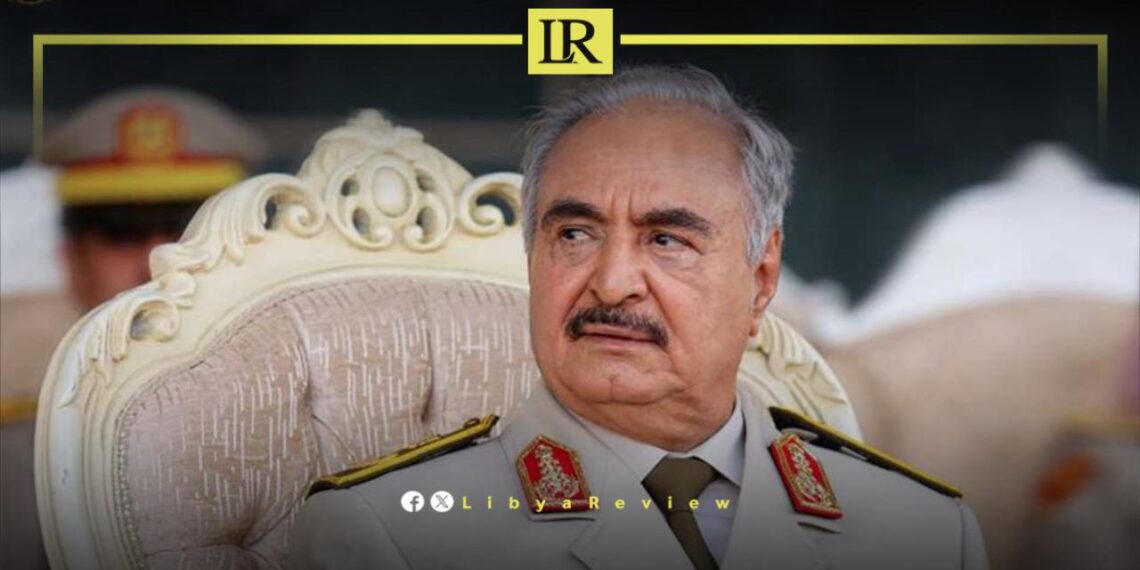On Tuesday, the General Command of the Libyan National Army, headed by Field Marshal Khalifa Haftar, voiced strong support for the recent decision to grant Ageela Saleh, the Parliament Speaker, the powers of the Supreme Commander of the Armed Forces. This significant development marks a pivotal moment in Libya’s ongoing political and military dynamics.
In an official statement, the LNA General Command emphasized the need for both presidential and parliamentary elections as essential steps toward achieving long-term stability in Libya. The statement reinforced the Parliament’s role as the only political body in Libya elected by the people, asserting its legitimacy amid the country’s ongoing power struggles.
The General Command also underscored its commitment to fulfilling national security duties, particularly in protecting Libya’s borders with neighboring countries, as part of its standard military responsibilities.
This announcement follows a decision earlier in the day by Ageela Saleh to strip the Presidential Council of its role as the Supreme Commander of the Armed Forces, transferring these powers to the Speaker of the Parliament instead.
He also announced that 50 MPs have submitted a memorandum to terminate the mandate of Abdul-Hamid Dbaiba’s Government of National Unity (GNU).
The memorandum asserts that the government appointed by the House of Representatives (HoR), led by Osama Hammad, should be recognised as the legitimate government.
Libya has faced persistent political instability since the 2011 overthrow of Muammar Gaddafi, leading to a divided nation with rival governments and military factions. The House of Representatives, based in Tobruk, has frequently clashed with the Tripoli-based Government of National Unity (GNU) and its allied forces.
By granting the role of Supreme Commander to Ageela Saleh, the Parliament is consolidating military authority within the eastern-based government, further asserting its influence over Libya’s fragmented political landscape. This move comes at a time when there is widespread agreement on the need for national elections as a crucial step toward resolving the country’s ongoing conflict and establishing a unified government.


